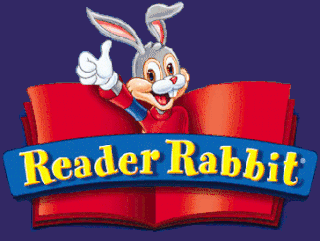
Kent Beck is an American software engineer and the creator of extreme programming, a software development methodology that eschews rigid formal specification for a collaborative and iterative design process. Beck was one of the 17 original signatories of the Agile Manifesto, the founding document for agile software development. Extreme and Agile methods are closely associated with Test-Driven Development (TDD), of which Beck is perhaps the leading proponent.

Martin Fowler is a British software developer, author and international public speaker on software development, specialising in object-oriented analysis and design, UML, patterns, and agile software development methodologies, including extreme programming.
The Rational Unified Process (RUP) is an iterative software development process framework created by the Rational Software Corporation, a division of IBM since 2003. RUP is not a single concrete prescriptive process, but rather an adaptable process framework, intended to be tailored by the development organizations and software project teams that will select the elements of the process that are appropriate for their needs. RUP is a specific implementation of the Unified Process.
The Learning Company (TLC) is an American educational software company, currently owned by Houghton Mifflin Harcourt. It produced a grade-based system of learning software and tools to improve productivity. Products for preschoolers through second graders include Reader Rabbit, and software for more advanced students include The ClueFinders. The company is also known for publishing licensed educational titles featuring characters such as Arthur, Scooby-Doo, Zoboomafoo, and Caillou.
ThoughtWorks is a privately owned, global technology company with 42 offices in 15 countries. It provides software design and delivery, and pioneering tools and consulting services. The company is closely associated with the movement for agile software development, and has contributed to a range of open source products.
In time management, timeboxing allocates a fixed time period, called a timebox, within which planned activity takes place. It is employed by several project management approaches and for personal time management.
Lean software development is a translation of lean manufacturing principles and practices to the software development domain. Adapted from the Toyota Production System, it is emerging with the support of a pro-lean subculture within the Agile community. Lean offers a solid conceptual framework, values and principles, as well as good practices, derived from experience, that support agile organizations.

Rabbit show jumping or Kaninhop is modeled after horse show jumping, on a scale to suit rabbits. Competitions have been held in the USA and several European countries.
Scrum is an agile framework for managing knowledge work, with an emphasis on software development, although it has wide application in other fields and is slowly starting to be explored by traditional project teams more generally. It is designed for teams of three to nine members, who break their work into actions that can be completed within timeboxed iterations, called sprints, no longer than one month and most commonly two weeks, then track progress and re-plan in 15-minute time-boxed stand-up meetings, called daily scrums.

Reader Rabbit is an edutainment software franchise created in 1983 by The Learning Company. This series is aimed at children from infancy up to the age of eight. In 1998, a spin-off series called The ClueFinders was released for older students aged 8 to 12.

Agile Project Management: Creating Innovative Products by Jim Highsmith discusses the management of projects using the agile software development methodology. The book has been recommended by different reviewers.
In software engineering, a software development process is the process of dividing software development work into distinct phases to improve design, product management, and project management. It is also known as a software development life cycle. The methodology may include the pre-definition of specific deliverables and artifacts that are created and completed by a project team to develop or maintain an application.
DevOps is a set of software development practices that combines software development (Dev) and information technology operations (Ops) to shorten the systems development life cycle while delivering features, fixes, and updates frequently in close alignment with business objectives.
Agile Business Intelligence (BI) refers to the use of Agile software development for BI projects to reduce the time it takes for traditional BI to show value to the organization, and to help in quickly adapting to changing business needs. Agile BI enables the BI team and managers to make better business decisions, and to start doing this more quickly.

Extreme programming (XP) is a software development methodology which is intended to improve software quality and responsiveness to changing customer requirements. As a type of agile software development, it advocates frequent "releases" in short development cycles, which is intended to improve productivity and introduce checkpoints at which new customer requirements can be adopted.

Robert C. Martin, colloquially known as "Uncle Bob", is an American software engineer and instructor. He is best known for being one of the authors of the Agile Manifesto and for developing several software design principles. He was also the editor-in-chief of C++ Report magazine and served as the first chairman of the Agile Alliance.
Perforce, sometimes referred to as Perforce Software, is a Minneapolis, Minnesota-based developer of software used for application development, including version control software, web-based repository management, developer collaboration, application lifecycle management and Agile planning software. The software is sold under the Helix and Hansoft brand names.










